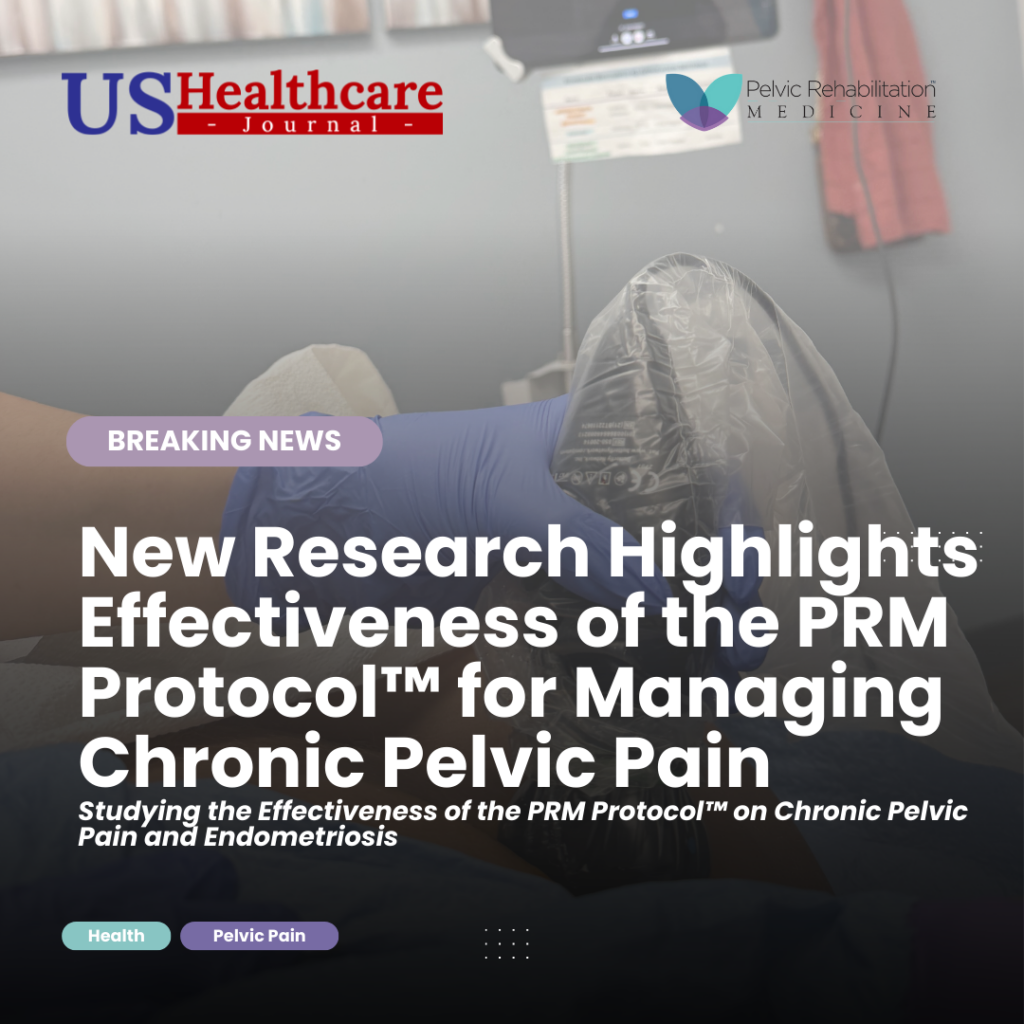Studying the Effectiveness of the PRM Protocol™ on Chronic Pelvic Pain and Endometriosis
“The study emphasizes the PRM Protocol™ is an effective treatment for those suffering from pelvic pain and endometriosis, offering a simple and effective way to manage pain and improve quality of life.”— Dr. Allyson Shrikhande, co-founder of PRM
WEST PALM BEACH, FL, UNITED STATES, October 22, 2024 / EINPresswire.com / — Pelvic Rehabilitation Medicine (PRM), has released new data on improving the quality of life for chronic pelvic pain and endometriosis patients via its proprietary, patented, simple, office-based procedure to treat the symptoms of chronic abdominal pelvic pain by direct treatment of inflamed pelvic nerves and spastic pelvic muscles which are often the root cause of symptoms – The PRM Protocol™.

Chronic Pelvic Pain (CPP) is a complex condition affecting about 1 in 4 adults, causing persistent abdominal-pelvic pain that lasts more than six months. CPP affects physical and mental health, and there is limited research on effective treatments.
This new study addresses that gap by exploring the effects of nerve blocks and trigger point injections to relieve pain for CPP patients. Most treatment options include medications, physical therapy, acupuncture, lifestyle changes, and more. This research focuses on a new ultrasound-guided procedure, the PRM Protocol™, to target pain and improve outcomes for those suffering from CPP.
• Participants included in this study were 128 patients (92 women and 36 men) aged 18-76 years old diagnosed with CPP and presented to an outpatient pelvic rehabilitation practice between June 2022 and September 2023.
• Of the 128 patients, 73 participants were in the treatment group. The treatment group refers to those who completed the PRM Protocol™.
• Additionally, 55 participants were in the control group (those who did not complete the PRM Protocol™).
The PRM Protocol™ consists of a series of pelvic nerve and muscle treatments to target inflammation in the pelvis, nerve pain, and pelvic floor muscle spasms.
One year after the final treatment, patients’ responses were evaluated through phone calls. The main focus was on changes in pain levels, which were measured on a scale of 1 to 10 based on their average pain over the last 24 hours.
The study showed promising results for patients with chronic pelvic pain who underwent a series of peripheral nerve blocks and trigger point injections:
Pain Reduction
Patients who received the treatment reported a 28% decrease in pain levels over a year. Their average pain score dropped from 7.7 to 5.6 on a scale of 1 to 10. In comparison, those who did not receive the treatment saw only a 10% reduction in pain, from 7.2 to 6.5.
Fewer Surgeries
In the treatment group, 16% of patients had fewer abdominal-pelvic hernia surgeries, compared to 11% in the control group. For endometriosis surgeries, 11% of treated patients had fewer surgeries versus 9% in the control group.
Reduced Procedures
There was a 43% decrease in the need for endoscopy procedures (a type of internal examination) in the treatment group, while the control group saw a 28% decrease.
Reduced Opioid Use and ER Visits
In the treatment group, opioid use dropped from 26% at the beginning to 14% one year after treatment, a 12% decrease. Emergency room visits for pain also decreased from 23% to 10%, a 13% reduction. In contrast, the control group saw a 3% increase in opioid use and a smaller 6% decrease in ER visits.
Overall Improvement in Medical Interventions
The treatment group showed significant reductions in surgeries, medical treatments, and diagnostic procedures compared to the control group.
These results suggest that an office-based neuromuscular treatment can significantly improve pain, reduce opioid use, decrease emergency room visits, and lower the need for surgeries and other medical procedures for patients with chronic pelvic pain, ultimately enhancing their quality of life.
The study emphasizes that the PRM Protocol™ is an effective treatment for those suffering from pelvic pain and endometriosis, offering a simple and effective way to manage pain and improve patients’ quality of life.
